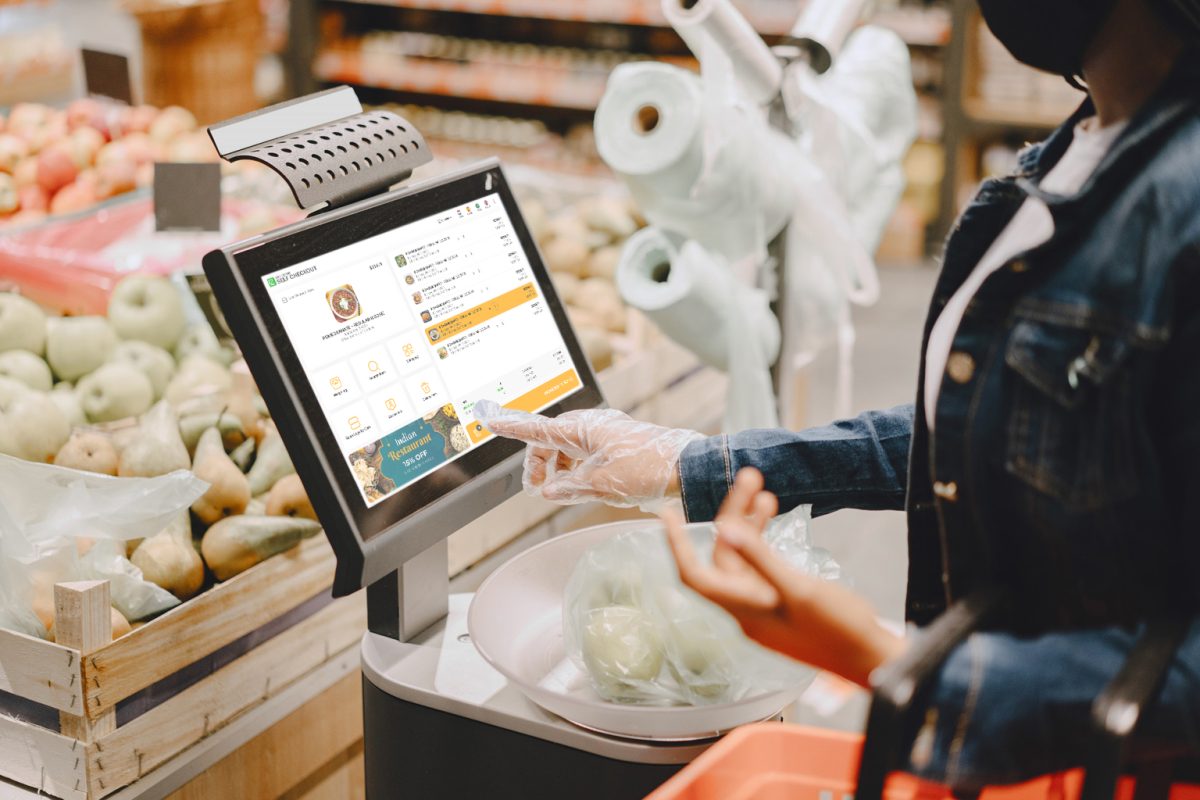Restaurants are developing rapidly, managing technological innovations that increase customer experience, streamline operations, and improve efficiency. When we enter 2025, several key technological trends will form the future of US restaurants from the automation of the driven AI to advanced POS software, these innovations will revolutionize how restaurants work.
Let’s explore some of the best technological trends that define the industry this year.
1. AI-Powered Automation & Robotics
AI and automation transform the operation of restaurants, reduce labor costs, and improve service speed. Many restaurants use chatbot-controlled AI for customer service, predictive analysis for inventory management, and robotic kitchen assistants for food preparation. This progress helps businesses optimize efficiency while maintaining high-quality standards.
Autonomous food supply robots also become more common, reducing dependence on people’s delivery staff and ensuring timely food supplies. Some restaurants even experiment with the development of AI-controlled recipes and create new meals based on customer preferences and market trends.
2. Contactless & Digital Payments
With increasing preferences for smooth and safe transactions, digital payment solutions have become a necessity. Contactless payment options, including mobile wallets, QR codes, and cryptocurrency payments, have gained popularity. This shift ensures faster cash registers, increases security, and improves the overall food experience for customers.
In addition to contactless payments, the restaurant accepts Blockchain technology for secure and transparent transactions. POS software such as Lithospos supports multiple digital payment methods and ensures trouble-free and secure transactions for businesses. Integrated payment processing, increases security by preventing fraud and ensuring that financial transactions are manipulation-resistant.
3. Advanced POS Software for Smarter Operations
Robust software for sales (POS) is crucial for modern restaurants. POS software, such as LithosPOS, is designed to integrate various aspects of restaurant management, from processing orders and processing payments after monitoring in-stock and managing customer relationships. Thanks to cloud technology, restaurants have real-time access and make informed business decisions, which ensures trouble-free operations.
Modern POS Software also includes AI-controlled analysts, helping restaurant owners get information about sales trends, customer behavior, and top working hours. This data-based approach allows for better decision-making and better resources.
4. Integration with Online Ordering and Delivery Platforms
Demand for online food supply continues to grow, creating integration with third-party platforms necessary for restaurants. Advanced POS Software allows businesses to manage both internal and online orders from one interface, eliminating the need for manual orders and reducing errors. This integration increases efficiency and increases customer satisfaction.
Ghost Kitchens, which works exclusively for online orders, also benefits from integrated POS software. Lithospos helps these cloud kitchens provide trouble-free management of digital orders through the aggregator function, allowing businesses to manage orders from multiple third-party platforms in one system. This integration streamlines efficient food preparation and delivery processes and ensures smooth operations.
5. Smart Kitchen Display Systems (KDS)
Kitchen display systems (KDS) replace traditional paper tickets, which improves order accuracy and kitchen workflow. The well-integrated KDS makes communication between the front and back of the house, which reduces the waiting times and minimizes food waste. Solutions, such as a kitchen display, offer an intuitive way to drive orders effectively.
In addition, some advanced KDS solutions now include predictive AI-powered analysis, allowing chefs to predict more efficiently and prepare meals. This technology helps to reduce food waste and optimize the use of ingredients.
6. AI-Driven Personalization and Customer Engagement
Personalization is the key to strengthening the experience with customers. The AI-controlled solution analyzes customer preferences and past orders to provide tailor-made recommendations, loyalty rewards, and personalized promotions. Many restaurants also use marketing automation-driven AI to engage customers through targeted offers and dynamic price strategies.
In addition, virtual assistants powered by AI are used to process reservations, design the possibilities of eating, and help customers with special dietary requirements, making the food experience more pleasant and comfortable.
7. Sustainability and Eco-Friendly Technologies
Sustainability is a growing interest for both businesses and consumers. Many restaurants receive technology that minimizes food waste, optimizes energy consumption, and implements ecological packaging. AI-based waste monitoring systems and sustainable resources are becoming standard in this industry.
The restaurants also invest in intelligent appliances that use IoT (Internet of Things) technology to monitor energy use and waste reduction. Some companies even use composting systems and biodegradable packaging to minimize their environmental impact.
8. Offline Functionality for Uninterrupted Operations
Internet disruption can affect restaurant operations, leading to delayed transactions and lost sales. POS Software, such as Lithospos, offers offline functionality and ensures that businesses can continue to process transactions and control operations without an internet connection. This feature is particularly beneficial for high-volume restaurants and distant places.
Offline compartability in POS software allows continuous order processing, and data synchronization with cloud servers once the connection is restored. This ensures that restaurants do not experience downtime or financial losses due to technical disturbances.
9. Voice-activated technology and Smart Assistants
Voice technology enters restaurant operations. Voice-activated assistants help manage orders, plan reservations, and answer customer questions. Intelligent voice systems allow Hands-free operation reduce workloads for restaurant employees and improve efficiency.
Voice search optimization also becomes decisive for marketing restaurants, as more customers use voice devices to find dining options and place orders.
Conclusion
When we move to 2025, the technology of restaurants will revolutionize the industry, increase efficiency, improve customer experience, and control smarter business operations. From the automation of the driven AI to advanced POS software, these innovations of restaurants help remain competitive in the fast-developing market.
Lithospos plays a key role in this transformation by offering comprehensive POS solutions that integrate payments, online ordering, stock management, and AI analysts. Thanks to its offline features and smooth third-party integration, Lithospos ensures continuous operations and excellent dining. By adopting these technological advances, restaurants can optimize workflows, reduce costs, and stay forward in the constantly changing F&B space.
LithosPOS — The ultimate partner in smarter operations and happier customers.
Ready to take your business to the next level? Contact us today!


















